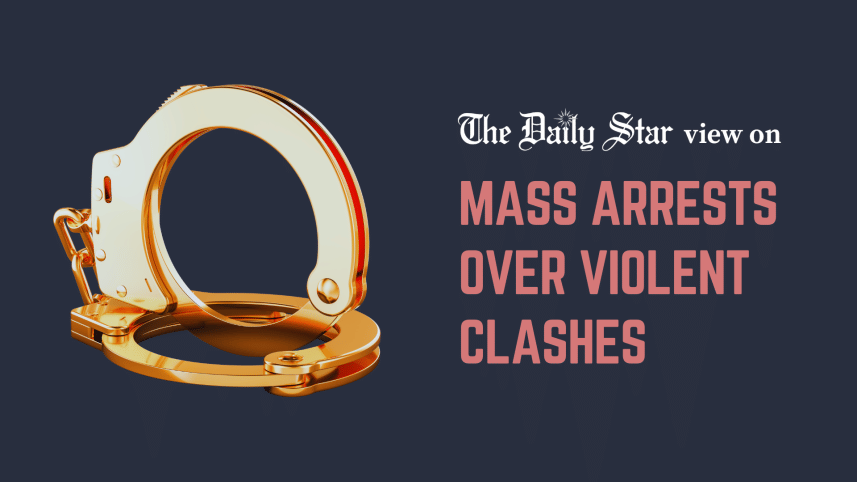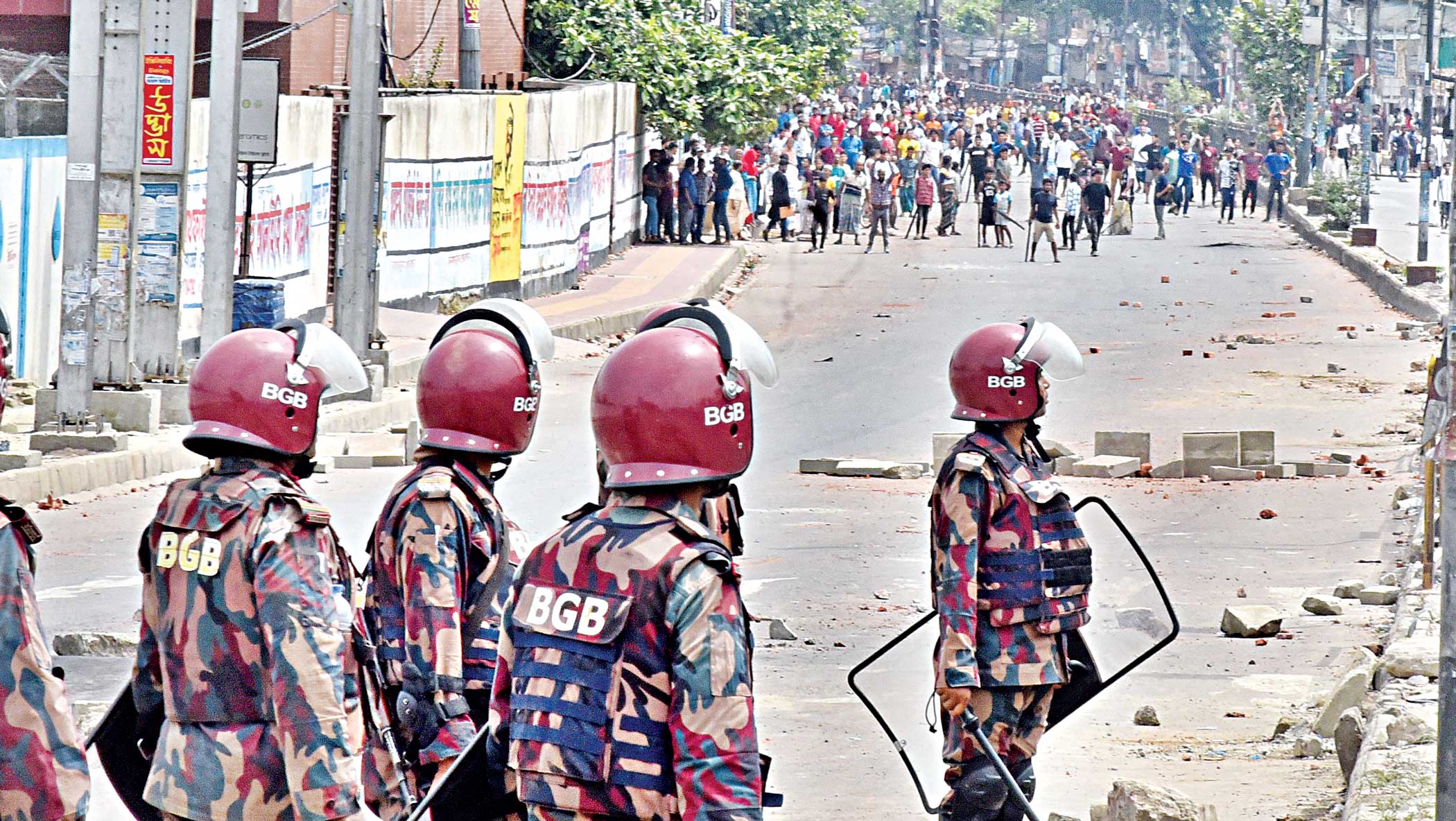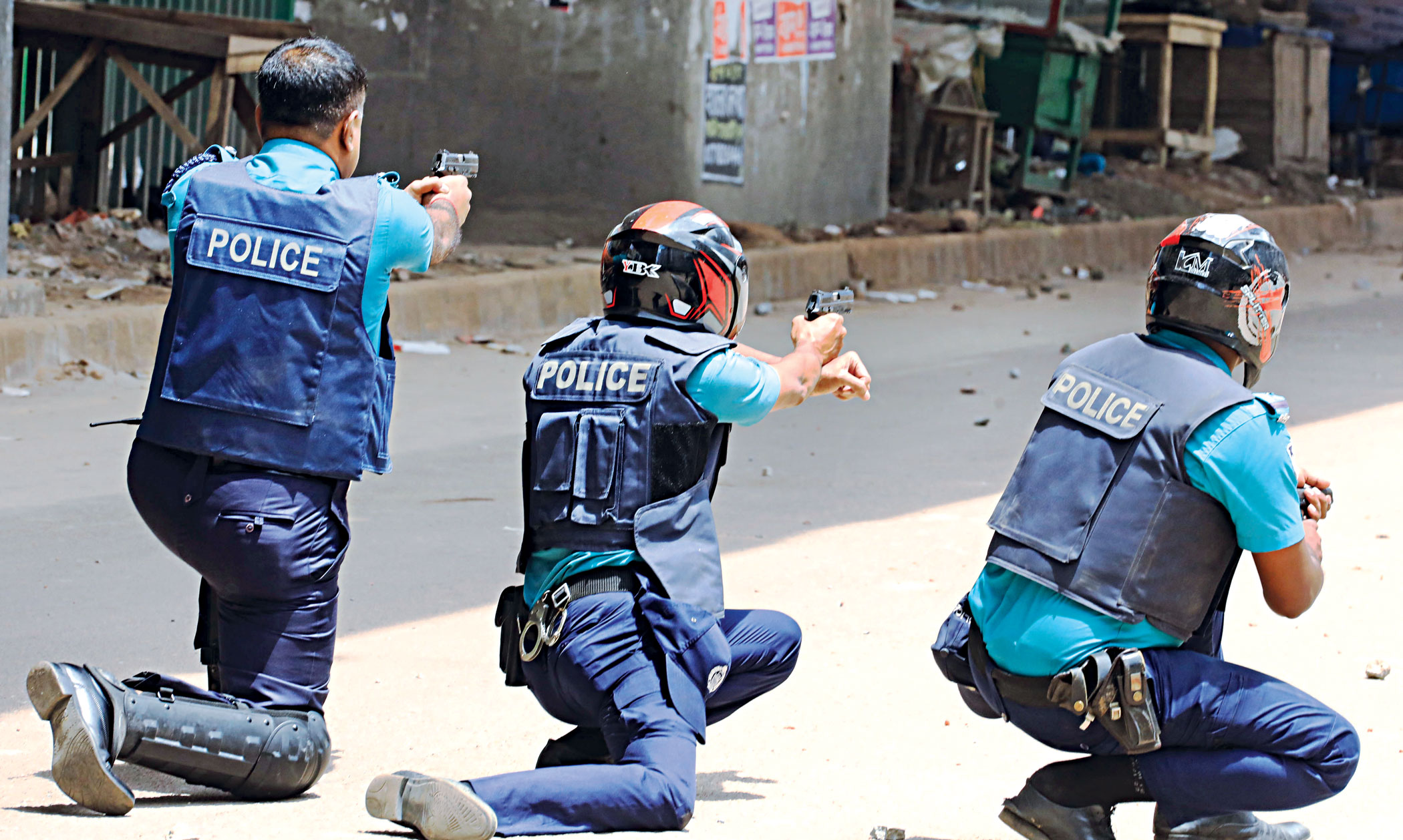Legal actions must follow due process

We're alarmed by the reckless and selective manner in which law enforcement authorities are going about arrests and cases in response to the recent violent clashes. While we certainly support appropriate legal actions to ensure accountability for the violence—which killed at least 156 individuals as per this daily, and destroyed or damaged dozens of public infrastructures and installations—it is absolutely essential that the accountability process remains unbiased and above board from start to finish. Otherwise, it may again slide into the kind of witch-hunt we saw after some of the protests and clashes in recent years.
According to a report by this daily, at least 3,425 people have been arrested in the five days between July 20 and 24 in connection with the clashes, attacks, vandalism, and arson witnessed in different parts of the country. Of them, 1,380 have been arrested in 154 cases filed in Dhaka, while at least 75 cases were filed in six other districts. A Prothom Alo report, which presents a more comprehensive picture of the cases and arrests over eight days across the country, says many of the arrestees were BNP-Jamaat men. This seems to align with the government's declared position, even before any investigation, that BNP was responsible for orchestrating the violence—an accusation that it denies, claiming that this is but a cover for the government to crack down on dissent. The truth of the matter will only be determined through fair and unbiased investigations.
The question is, will that at all be possible? Why are old cases against BNP-Jamaat men being revived? On what basis are the police and Rab preparing their lists of culprits? And why is so much of the investigative and narrative focus on vandalism in public properties? What about the indiscriminate police shootings that led to so many tragic deaths? In today's charged atmosphere, ensuring that all legal actions are conducted transparently and impartially is crucial to maintain public order and trust in the justice process. This will be harder to achieve if the present trends hold. Despite the government's admission that students participating in the quota reform protests were not involved with the vandalism and arson attacks—and its subsequent assurance that no legal action would be taken against them—a number of cases have been filed by police and BCL leaders against students. Some of the student organisers were also allegedly abducted by state agencies. This directly contradicts with the government's promise, and may further exacerbate prevailing tensions.
In all likelihood, many factors and elements may have been responsible for the unprecedented violence that has ensued since July 18, not excluding an outburst of popular anger over growing economic hardships, governance deficits and lack of democratic space in the country. Against this backdrop, it is paramount that the authorities do not indulge in mass arrests and cases targeting certain groups. Every arrest or prosecution must be grounded in solid evidence, and the judicial process must be transparent and free from political influence.



 For all latest news, follow The Daily Star's Google News channel.
For all latest news, follow The Daily Star's Google News channel. 


Comments